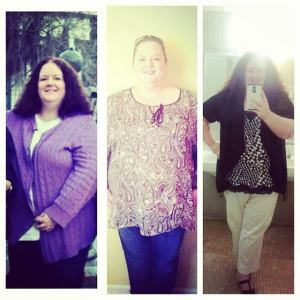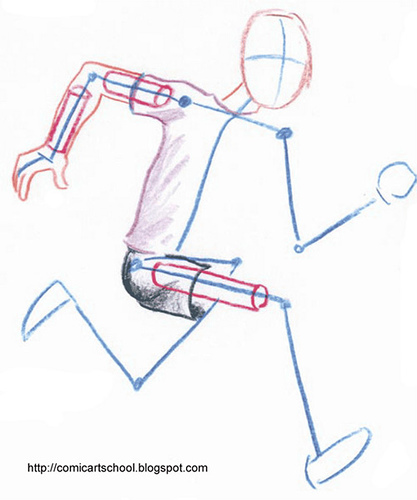My friend Margie is one of the most inspiring people I know. To say that she has taken charge of her life would be an understatement. Over the last few years, she has tackled the various areas of her life, improved them and transformed them. Today, she writes about her journey toward better health. Read on, and prepare to be inspired.
My weight is going to kill me.
I knew this at the exact moment that the nurse had to take my blood pressure twice because she was concerned about the initial high reading. While I wanted to believe that it was her ineffective bedside manner because I know that my fat arms require the larger cuff, the fact that I knew I even needed the larger cuff DUE to fat arms was the moment that I had to accept my fate. My downhill march to death has started and I have nobody to blame but myself.
Granted, I hope that it doesn’t happen today, or tomorrow, or anytime in the near future, but eventually, if I don’t get healthy, my weight will kill me. Admit it, you never see elderly fat people just kicked back, living it up at the Senior Center. That’s because by the time you hit middle age, if you are obese, the health problems start to wear down your body and organs.
That’s blunt but it’s the truth. If you are reading this, are of a certain age and more than 100 pounds overweight, then you probably already know what I know: the life expectancy for a morbidly obese person who is past 40 years old is decreased by up to ten years. (http://ajcn.nutrition.org/content/82/5/923.full)
I am 41 years old, a middle class Caucasian female, and I am trying to save my life. Earlier this year, I topped the scales at over 300 pounds. Looking back at pictures from that time is very painful because I can see the unhappiness in my eyes. Physically, I was at my highest weight and my body felt it in various ways. My struggle with my weight is the same story that my generation of women share: we came of age with mothers who learned in their 1960ish teenage years to fad diet their body images onto us. Then, the internet came along, which solidified the “skinny is perfection” belief, and as we have children, we are passing along that message. It’s a vicious cycle with serious consequences for our society’s future.
Every woman that I know is an expert in picking her body image to shreds and always, ALWAYS, believing that she needs to lose this much or just a little more and she will be perfect happy. Our society regularly rams this message down our throats and millions of us are the reason that the diet industry is a $20 billion dollar business. Twenty billion! (www.abcnews.com) That’s how much we have been brainwashed that quick-and-easy is the only fix.
In high school, I was a size 8 and you could actually see my collarbones. And. I. Thought. I. Was. Fat. That memory makes me laugh hysterically now because if I ONLY KNEW what was coming for me. But, I was told I was fat and I believed it to be true. I never much watched what I ate or exercised. Once I got in to my 20’s, started having children, and continued eating processed foods, my weight began to climb.
And yes, I succumbed to the diet schemes and again, like many women, I have a list of them that I tried. Oh and I would be successful with them too. That is, until I stopped taking the pills, or ate carbs again, or stopped howling at the moon at midnight, or whatever the tricks of that particular weight loss plan. Then, I would not only gain back what I lost, but I would add more pounds to the total. As I grew older, the weight started to affect my health.
At 40 years old, I was diagnosed with diabetes and high blood pressure. These are solely because I am overweight and I am overweight for two main reasons: I did not eat healthy and I never regularly exercised. That’s it. That, gentle reader, is the simple truth about struggling with weight issues. Outside of weight loss surgery, which I am against for opinions all my own, no diet or pill is going to help you successfully lose weight and maintain the loss.
This is a growing epidemic in our culture as our population continues to rely less on fresh, clean food and more on processed and fast food. We all know the statistics and that our culture is driven increasingly by the quick result. That’s a huge reason why so many people, like me, have been unsuccessful in their weight loss attempts. It’s all good those first few weeks but when you don’t lose 200 pounds at once, many have the tendency to quit.
I have worked for many things in my life, finishing my college degree as a working, older mother, being chief among them, but nothing, and I mean, NOTHING, has been as hard as losing weight. I started my wellness journey last January with a goal of eating less crap and moving my body more. Vowing to not use any diet tricks (and sad to say, I did get weak once and spent 14 days hating myself on Advocare), I started a journal and created a Facebook group just for women like myself. The name of the group is Losers, because that’s what we all want to be.
Here I am almost a year later and 54 pounds lighter. No, I am not even halfway to my goal weight and there have many bumps along the way. But, I have made changes and am baby stepping my way to a longer life. I credit the support that I surrounded myself with and the mindset that this is going to take a long time.
And yes, it’s going to take a long time. It just is, there is no way around that fact. But, it’s worth it: for yourself, for your family, for the sustainability of our society.
Are you ready to save your life?
Margie can be found on Twitter @thehunnyb and on Facebook under Margie Webb. If interested in joining her Losers support group, she can be reached at either. Photo credit to the author.











